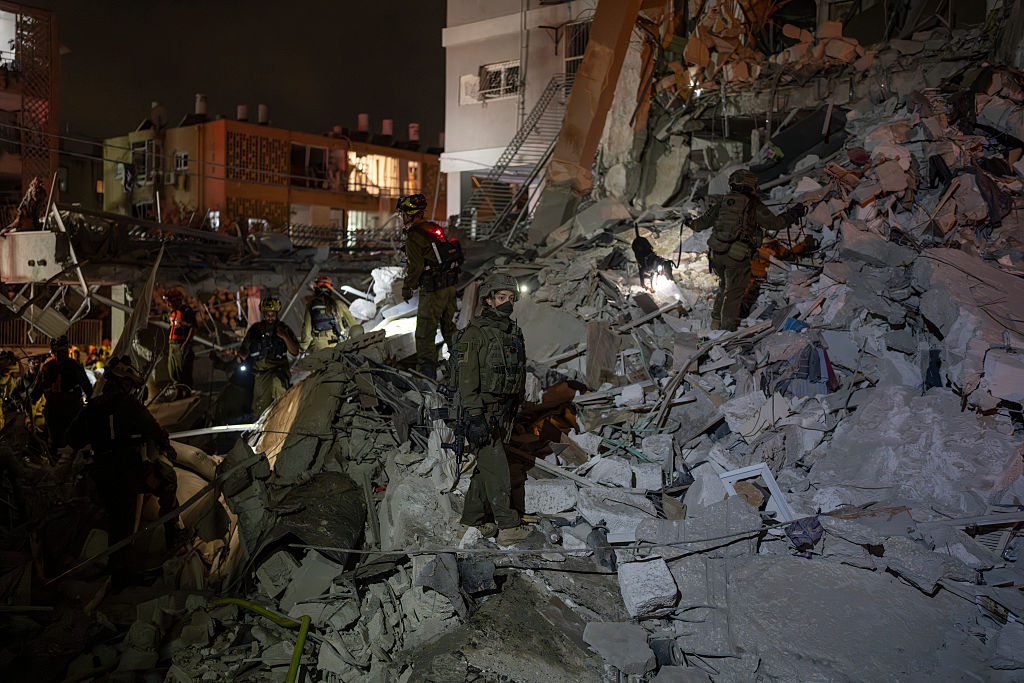Iran and Israel have entered their deadliest phase of direct conflict yet, with at least 10 people killed in Israeli cities and massive fires reported at an oil depot in Tehran following reciprocal strikes on June 15. This marks the third consecutive day of military exchanges, as both governments vow further action amid a rising humanitarian toll and growing regional instability.
Devastation in Israeli Cities
Emergency services in Israel are racing against time to locate seven individuals still trapped beneath rubble. Ongoing rocket fire has hampered rescue operations, even as more than 300 Israelis have been injured since Iran launched its missile barrage on Friday. Hospitals in central and northern Israel are operating at full capacity.
Air raid sirens wailed throughout the day across Israeli cities as residential areas suffered direct hits. In Bat Yam, six people were killed after an Iranian missile struck an apartment building. Rescue workers sifted through collapsed concrete and twisted metal to reach survivors. In Tamra, near Haifa, four individuals were confirmed dead after a two-story home was destroyed in the attacks.
The Weizmann Institute of Science, a leading research university located in Rehovot, also sustained damage during the missile onslaught, with several of its facilities reportedly hit.
Israeli Strikes on Tehran
In retaliation, Israeli warplanes launched a barrage of airstrikes on key infrastructure in Iran, including a major oil facility in Tehran. The attack sparked massive fires that sent thick plumes of black smoke over the city. The Israeli military dubbed the retaliatory operation “Operation Rising Lion,” targeting Iran’s Defense Ministry headquarters and other nuclear-linked sites.
Iran’s Foreign Minister Abbas Araghchi made his first public appearance since the strikes began, stating, “If Israeli attacks cease, our responses will also stop.”
Regional Fallout
Iranian-backed Houthi forces in Yemen claimed responsibility for coordinating their own strikes on Israeli targets, signaling the potential expansion of the conflict into a broader regional confrontation.
The violence has already disrupted diplomatic processes. Oman confirmed the cancellation of the sixth round of U.S.-Iran nuclear negotiations scheduled in Muscat today, citing the “ongoing hostilities” as the reason.
The Israeli intelligence operation that preceded Iran’s retaliation reportedly led to the deaths of three senior Iranian military commanders and two nuclear scientists—described by analysts as one of the most significant Israeli blows to Iran in years.
Although no nuclear accidents have been confirmed, international observers have voiced concern over potential radiation and chemical exposure due to strikes on sensitive Iranian sites.
Escalating Rhetoric and Military Posture
Both countries have enacted military censorship and closed parts of their respective airspaces. In a stark warning, Israeli Prime Minister Benjamin Netanyahu said that “Iran has seen only a fraction of what Israel is capable of.” Meanwhile, Iran’s Revolutionary Guards have promised a “far more forceful” response should Israeli attacks continue.














